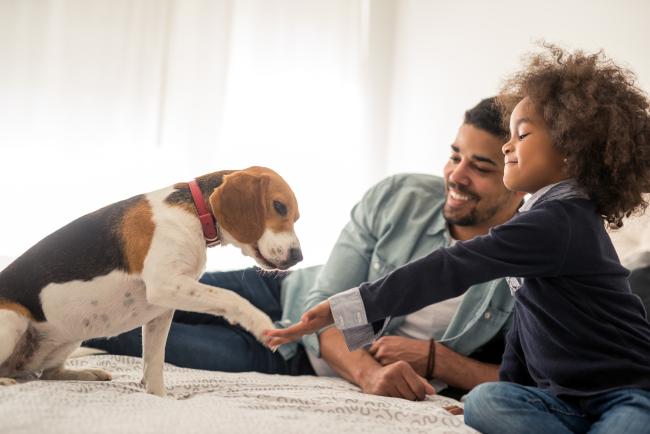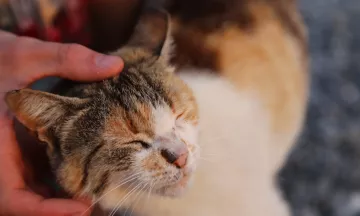Many children adore animals. Although it can be a big job raising your child responsibly with pets, it's definitely something worth investing time and energy into. Did you know that owning a pet is not just fun, but also very healthy for children? Here's how + some tips to consider if your child wants a pet.
A pet is healthy
Many parents think it's important for their children to grow up with animals around them. And did you know that it's not only fun for children to have pets, it can also be good for their health? Some scientists suspect that certain bacteria from dogs and cats can prevent allergies, asthma and obesity in kids. Particularly for young babies, the presence of pets can increase immunity to certain allergies and overall disease resistance. And, believe it or not, these positive effects may even start before birth and continue throughout life! Note: always maintain hygiene around pets and watch out with dog kisses and your young ones, as a dog's tongue can contain pathogens and other nasties.
A pet provides peace and support
Patting a dog, cat or other animal can have a relaxing effect, which, in turn, can lower your blood pressure and reduce stress. Anxious children who have a furry friend around them may, therefore, be really calmed down and put at ease by the presence of a pet. In this hectic and fast-paced life we live, with social pressures on kids to achieve goals from an early age, a pet can play a really important role for children who need help maintaining peace-of-mind.
Furthermore, the presence of an animal can support children in socio-emotional development. A pet can be a close companion who will always listen and keep your secrets safe. Research also shows that children who are into contact with pets at a young age grow up with better self-esteem and more self-confidence. Children with autism spectrum disorders can also benefit greatly from the friendship of a pet.

Responsibility & skills
When dealing with animals, children can learn incredibly important skills, if properly supervised: such as making agreements and sticking to them, cleaning up, hygiene, discipline and patience. They learn to deal with that which is vulnerable and valuable in life. Children who grow up with animals are inclined to appreciate animals and nature later in life. In addition, children learn important life lessons from their pets about friendship, loyalty, illness, birth, death and mourning.
Many parents give their child a pet, but are concerned that the animal won't get enough attention or that the grown-ups will end up doing all the work. As a parent and the responsible adult in your home, you must accept that you are the primary carer and in charge of the animal's health and welfare. It's important to involve children intensively in the care of the pet, which should start before adopting (remember that a pet is never, EVER an impulse purchase). Take your time to find the pet that best fits your family.
Practical tips for parents:
- Safety is key: Supervise your child when interacting with a pet at all times. Teach your kid how to gently approach a dog or cat, and also when it's time to leave an animal alone.
- Many parents find a guinea pig an easy first pet for their child. Guinea pigs are definitely nice companions, but always opt for a pair (and be sure they are desexed or two females to prevent any babies!). Guinea pigs are a lot happier with a counterpart.
- A dog is a big responsibility and a long-term commitment. Do you want to find out whether a dog is right for your family? Then register as a pet sitter with Pawshake and offer pet sitting for dogs at your home. For example, a dog can occasionally stay with you and you will experience what that means for your family.
- Cats can be good friends for children, but not every cat likes to cuddle or patted. So take plenty of time to find a cat that really suits your family in the long term. Read more about choosing the right cat.
- A child must learn to take responsibility for an animal, but make sure the level of responsibility always matches your child's age It should be a fun experience for a child to look after an animal, but if it feels at all like a burden or boring, that's not good for either the child or the pet.
- Are you afraid that you do not always have enough time to care for an animal? Orient yourself in advance on a pet sitting network in the area. At Pawshake you will always find pet sitters in your area that you can reserve at any time, for example when you go on holiday or are away from home for the day. Find a pet sitter.







